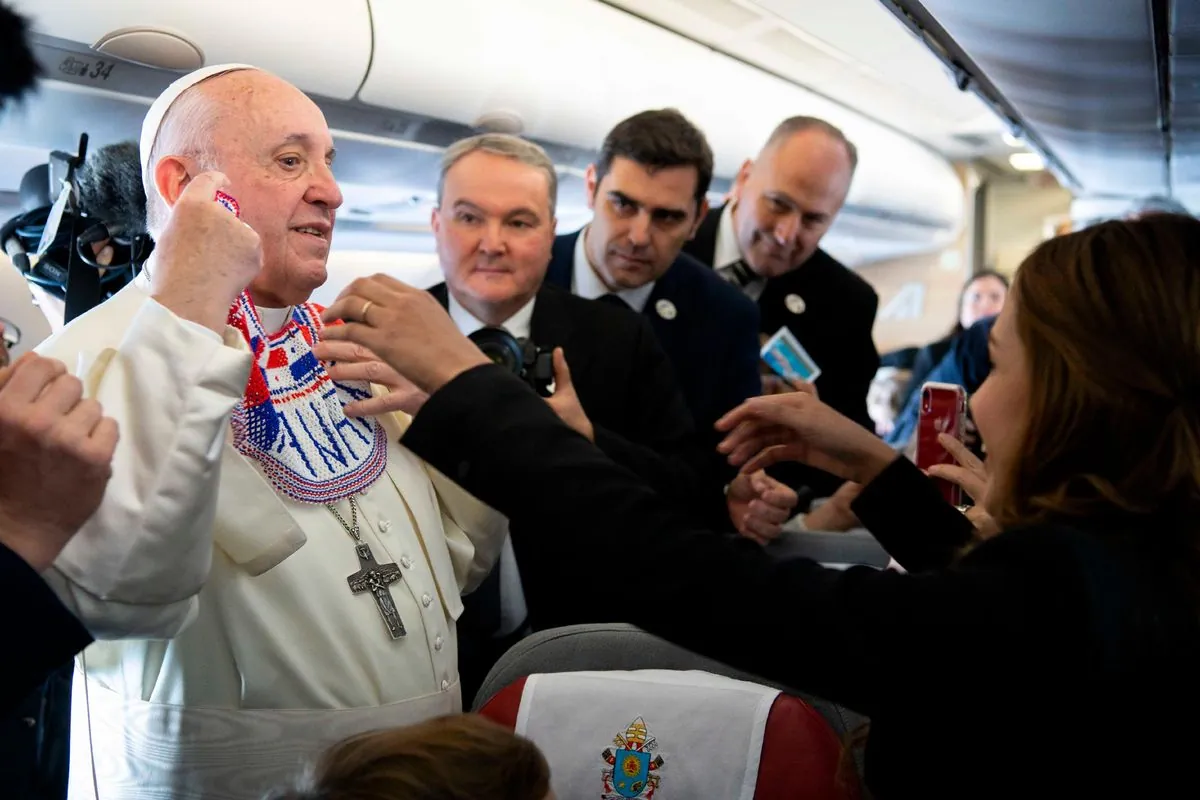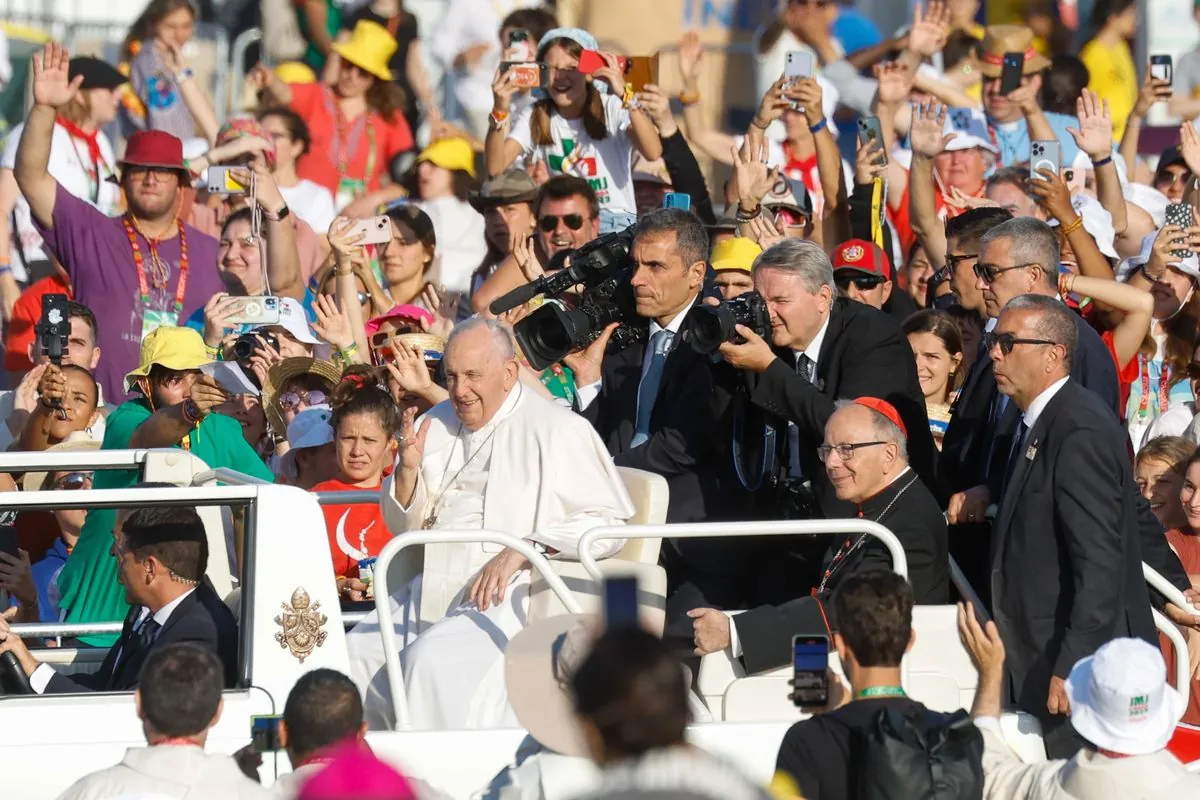Pope Francis' Controversial Comments: From U.S. Politics to LGBTQ+ Issues
Pope Francis criticizes U.S. presidential candidates and reaffirms controversial stances. His 11-year papacy marked by outspoken views on various issues, including LGBTQ+ rights and global conflicts.

Pope Francis has once again stirred controversy with his recent remarks about U.S. presidential candidates, continuing a pattern of outspoken commentary that has characterized his 11-year papacy. Approximately four months ago, while returning from an extensive Asian tour, the pontiff criticized both major U.S. presidential contenders for their positions on abortion and migration, advising American Catholics to select the "lesser evil" in the upcoming elections.
The Pope's statement, "Both are against life, be it the one who kicks out migrants, or be it the one who kills babies," exemplifies his willingness to address contentious issues directly. This approach has been a hallmark of his leadership since assuming the papacy on March 13, 2013, as the first Pope from the Americas and the Southern Hemisphere.
Throughout his tenure, Pope Francis has made numerous noteworthy comments, particularly regarding LGBTQ+ issues. Some of his most significant statements include:
- July 30, 2013: "Who am I to judge?" regarding a purportedly gay priest
- May 21, 2018: Telling a gay man, "God made you like this and he loves you"
- January 24, 2023: Declaring that "Being homosexual is not a crime"
These remarks have often been seen as signaling a more inclusive approach towards LGBTQ+ Catholics, although the Pope has also reaffirmed traditional Catholic teaching on marriage and sexuality.

The pontiff's outspoken nature extends beyond LGBTQ+ issues. He has addressed a wide range of topics, including:
- Contraception and family planning
- Drug trafficking and its societal impacts
- Immigration and border policies
- Abortion and the sanctity of life
- The Catholic Church's historical wrongdoings
One of the Pope's most significant actions was his historic apology on July 26, 2022, for the Catholic Church's involvement in Canada's Indigenous residential schools policy. This gesture demonstrated his commitment to acknowledging past wrongs and promoting reconciliation.
Pope Francis has also been vocal about global conflicts. Approximately seven months ago, he made controversial comments about the ongoing war between Russia and Ukraine, suggesting that Ukraine should consider negotiating to end the conflict. These remarks led to criticism and required clarification from Vatican officials.
The Pope's willingness to engage with contemporary issues reflects his broader efforts to reform the Roman Curia and address social justice concerns. His encyclical "Laudato si'," published in 2015, highlighted his commitment to environmental issues and critique of economic inequality.
As Pope Francis continues to lead the Catholic Church, his impromptu and often controversial statements are likely to remain a defining feature of his papacy. While these remarks have sometimes led to misunderstandings or required clarification, they have also sparked important discussions within and beyond the Catholic community on a range of pressing social and moral issues.
"Francis picked up the 'white flag' term that had been used by the interviewer. He issued a statement of clarification after the pope's 'white flag' comments sparked criticism that he was siding with Russia in the conflict."
This ongoing dialogue, fostered by the Pope's candid approach, reflects his commitment to engaging with the complexities of modern society while upholding the core teachings of the Catholic faith.


































